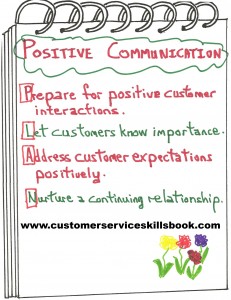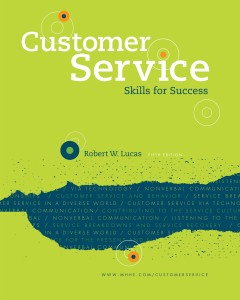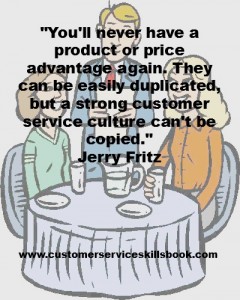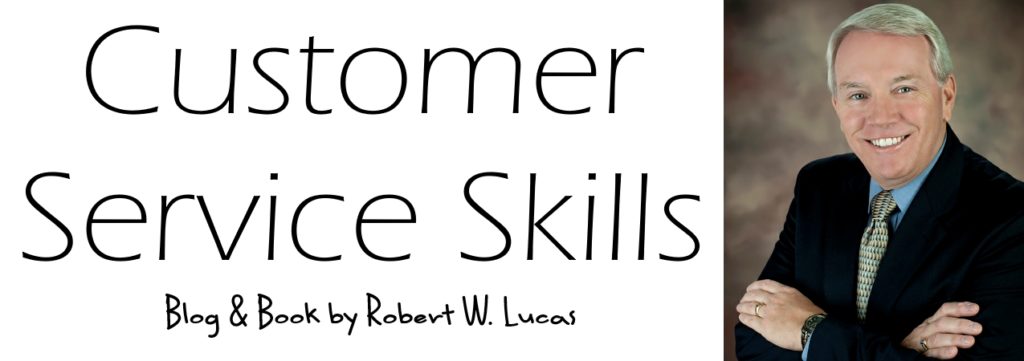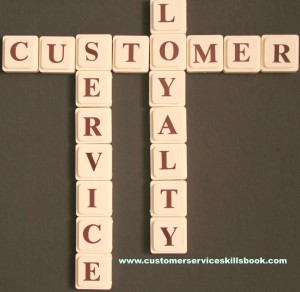Communicating Positively with Your Customers
Communicating positively with your customers is crucial for you and your organization. You should think out everything from your greeting to your closing statements before you come into contact with a customer. Know what you want and need to say, avoid unnecessary details or discussion, and be prepared to answer questions about the organization, its products and services, and the customer’s order. The important thing to remember that you should continually seek new knowledge and skills that can help in improving customer service.
To maximize your potential and create a positive outcome with customers, use the PLAN acronym as a guide to effective communication with those with whom you come into contact. The model stands for:
- Prepare for Positive Customer Interactions.
- Let Your Customers Know They Are Important.
- Address Your Customer’s Expectations Positively.
- Nurture a Continuing Relationship.
Source: Customer Service Skills for Success, 6th ed. by Robert W. Lucas, scheduled for Spring 2014 publication by McGraw Hill Higher Ed.
Additional customer communication strategies can be found in How to Be a Great Call Center Representative and Please Every Customer: Delivering Stellar Customer Service Across Cultures.
About Robert C. Lucas
Bob Lucas has been a trainer, presenter, customer service expert, and adult educator for over four decades. He has written hundreds of articles on training, writing, self-publishing, and workplace learning skills and issues. He is also an award-winning author who has written thirty-seven books on topics such as, writing, relationships, customer service, brain-based learning, and creative training strategies, interpersonal communication, diversity, and supervisory skills. Additionally, he has contributed articles, chapters, and activities to eighteen compilation books. Bob retired from the U.S. Marine Corps in 1991 after twenty-two years of active and reserve service.
Make Money Writing Books: Proven Profit Making Strategies for Authors by Robert W. Lucas at Amazon.com.
The key to successfully making money as an author and/or self-publisher is to brand yourself and your company and to make yourself and your book(s) a household name. Part of this is face-to-face interaction with people at trade shows, library events, book readings, book store signings, blogging or guest blogging on a topic related to their book(s). Another strategy involves writing articles and other materials that show up online and are found when people search for a given topic related to a topic about which the author has written.
If you need help building an author platform, branding yourself and your book(s) or generating recognition for what you do, Make Money Writing Books will help. Bob’s popular book addresses a multitude of ideas and strategies that you can use to help sell more books and create residual and passive income streams. The tips outlined in the book are focused to help authors but apply to virtually any professional trying to increase personal and product recognition and visibility.

